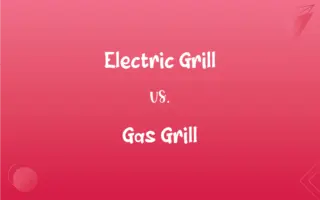MDA vs. MDMA: What's the Difference?
Edited by Aimie Carlson || By Janet White || Published on February 28, 2024
MDA (3,4-Methylenedioxyamphetamine) is a psychoactive drug known for its stimulant and hallucinogenic effects; MDMA (3,4-Methylenedioxymethamphetamine) is popular as "ecstasy," used for its euphoric and empathogenic effects.

Key Differences
MDA, or 3,4-Methylenedioxyamphetamine, is a psychoactive substance that produces both stimulant and hallucinogenic effects. MDMA, or 3,4-Methylenedioxymethamphetamine, is widely known as ecstasy and is famous for inducing feelings of euphoria, increased energy, and emotional warmth.
The chemical structure of MDA is similar to that of MDMA, but MDA is known to produce more pronounced hallucinogenic effects compared to MDMA. MDMA, on the other hand, is more renowned for its empathogenic effects, making users feel more emotionally connected with others.
MDA has a longer history of use, having been synthesized in the early 20th century, and was used for psychotherapeutic purposes. MDMA was synthesized later and gained popularity in the 1980s as a party drug due to its potent mood-enhancing and socializing effects.
The effects of MDA can last longer than those of MDMA, with MDA's effects typically lasting around 6 to 8 hours. MDMA's effects, however, usually last about 3 to 6 hours, depending on the dosage and individual metabolism.
Both MDA and MDMA are classified as Schedule I substances in the United States, indicating a high potential for abuse and no accepted medical use. However, both have been the subject of research for potential therapeutic benefits.
ADVERTISEMENT
Comparison Chart
Chemical Name
3,4-Methylenedioxyamphetamine
3,4-Methylenedioxymethamphetamine
Effects
Stimulant and hallucinogenic
Euphoric and empathogenic
Duration of Effects
6-8 hours
3-6 hours
Historical Use
Psychotherapeutic research
Recreational and party drug
Hallucinogenic Level
More pronounced
Less pronounced
ADVERTISEMENT
MDA and MDMA Definitions
MDA
MDA was initially used for psychotherapeutic purposes.
MDA's potential in psychotherapy was explored decades ago.
MDMA
MDMA, commonly known as ecstasy, is a popular recreational drug.
MDMA is often used at music festivals for its euphoric effects.
MDA
MDA is often compared to MDMA but with more hallucinogenic effects.
Users often report more intense visual effects with MDA than MDMA.
MDMA
It's known for inducing feelings of euphoria and emotional connection.
People take MDMA to enhance their social experiences.
MDA
It's known for its longer-lasting effects compared to similar substances.
After taking MDA, the effects lasted for nearly eight hours.
MDMA
MDMA has shorter-lasting effects compared to its analogs.
The effects of MDMA usually wear off after a few hours.
MDA
It's a Schedule I drug, indicating a high potential for abuse.
MDA is illegal and considered to have no medical use.
MDMA
It's also a Schedule I substance with no accepted medical use currently.
Despite its popularity, MDMA is illegal in many countries.
MDA
MDA is a synthetic drug with stimulant and hallucinogenic properties.
MDA was used in psychotherapy in the 1960s.
MDMA
MDMA is being researched for potential therapeutic uses.
Recent studies are exploring MDMA's use in treating PTSD.
MDMA
A drug, C11H15NO2, that is chemically related to amphetamine and mescaline and was formerly used in psychotherapy but is now illegal. It is used illicitly for its ability to induce euphoria, relaxation, and heightened empathy.
MDMA
Methylenedioxymethamphetamine, a drug designed to have the effects of amphetamines but originally synthesized to avoid the drug laws; it is now a controlled substance. It is informally called ecstasy. It is used by some abusively and illegally without a prescription.
MDMA
A stimulant drug that is chemically related to mescaline and amphetamine and is used illicitly for its euphoric and hallucinogenic effects; it was formerly used in psychotherapy but in 1985 it was declared illegal in the United States;
MDMA is often used at parties because it enables party-goers to remain active for long periods of time
FAQs
What is MDMA commonly known as?
MDMA is commonly known as ecstasy.
What is MDA?
MDA is a psychoactive drug with stimulant and hallucinogenic properties.
Are there any medical uses for MDMA?
Currently, there are no accepted medical uses for MDMA, although research is ongoing.
How long do the effects of MDA last?
The effects of MDA can last about 6 to 8 hours.
Is MDA legal for recreational use?
No, MDA is a Schedule I drug and illegal for recreational use.
How long do MDMA's effects last?
The effects of MDMA typically last about 3 to 6 hours.
What are the primary effects of MDMA?
MDMA is known for its euphoric and empathogenic effects.
How does MDMA affect social interactions?
MDMA enhances feelings of emotional warmth and connection in social settings.
Is MDMA legal in any country for recreational use?
MDMA is illegal for recreational use in most countries.
What is the difference in hallucinogenic effects between MDA and MDMA?
MDA produces more pronounced hallucinogenic effects than MDMA.
Why is MDA classified as a Schedule I drug?
MDA is classified as Schedule I due to its high potential for abuse and lack of medical use.
What is the history of MDMA's use?
MDMA gained popularity in the 1980s as a party drug.
Are there any potential therapeutic benefits of MDMA?
Research is exploring MDMA's potential benefits in treating conditions like PTSD.
Why do people use MDMA?
People use MDMA for its mood-enhancing effects, particularly in social and recreational settings.
What type of drug is MDA categorized as?
MDA is categorized as a psychoactive substance with stimulant and hallucinogenic effects.
How does MDMA affect emotional perception?
MDMA enhances feelings of empathy and emotional connection.
What is the chemical structure of MDA?
MDA's chemical structure is similar to MDMA but with different effects.
Can MDA be used for therapeutic purposes?
Historically, MDA was used in psychotherapy, but it's not currently accepted for medical use.
What are the similarities between MDA and MDMA?
Both MDA and MDMA are psychoactive substances with stimulant properties and are classified as Schedule I drugs.
Is MDA used in psychotherapy today?
MDA is not used in psychotherapy today due to its legal status and potential for abuse.
About Author
Written by
Janet WhiteJanet White has been an esteemed writer and blogger for Difference Wiki. Holding a Master's degree in Science and Medical Journalism from the prestigious Boston University, she has consistently demonstrated her expertise and passion for her field. When she's not immersed in her work, Janet relishes her time exercising, delving into a good book, and cherishing moments with friends and family.
Edited by
Aimie CarlsonAimie Carlson, holding a master's degree in English literature, is a fervent English language enthusiast. She lends her writing talents to Difference Wiki, a prominent website that specializes in comparisons, offering readers insightful analyses that both captivate and inform.






































































